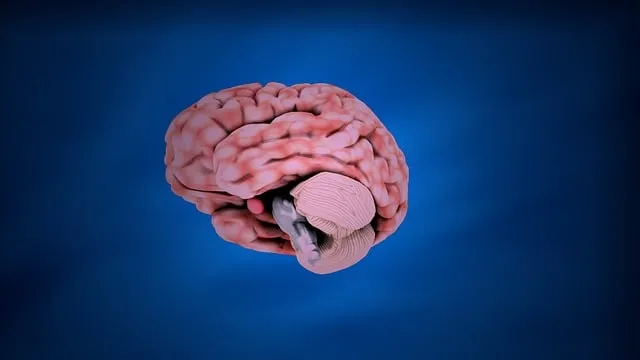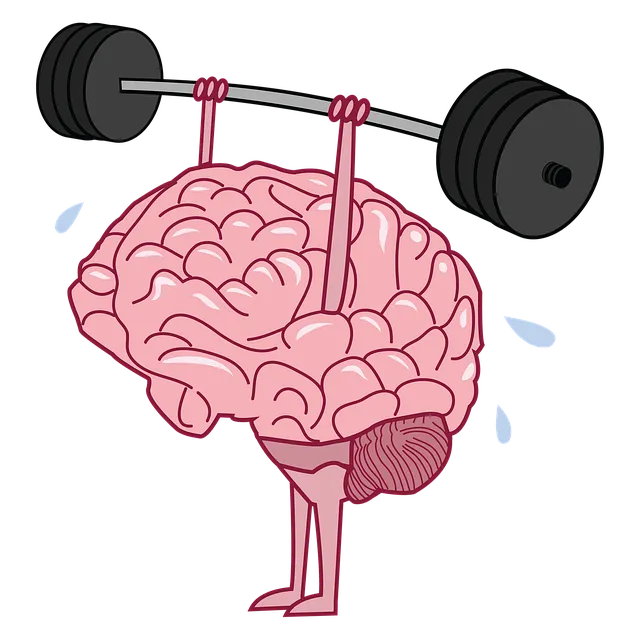Emotion regulation, crucial for mental health and well-being, involves managing emotions through techniques like mindfulness, deep breathing, cognitive reframing, and keeping emotional journals. Broomfield Kaiser Permanente's mental health phone number provides access to resources like Social Skills Training, Positive Thinking, Crisis Intervention Guidance, and a popular Mental Wellness Podcast Series. Techniques such as calming exercises and cognitive reframing, taught by professionals, enhance emotional intelligence and resilience. By integrating these practices into daily life, individuals can better navigate challenges, reduce anxiety, and improve overall quality of life, all while benefiting from the personalized support offered by Broomfield Kaiser Permanente.
Emotion regulation is a powerful tool for enhancing mental well-being, and learning effective techniques can transform lives. This guide explores evidence-based practices taught at Broomfield Kaiser Permanente’s mental health services, empowering individuals to navigate emotional challenges. From identifying triggers and patterns to mastering calming techniques and cognitive reframing, each section provides valuable insights. Discover how building resilience through consistent practice and support networks fosters a healthier, more balanced life. Contact Broomfield Kaiser Permanente for expert guidance on emotion regulation techniques.
- Understanding Emotion Regulation and Its Benefits
- Identifying Triggers: Recognizing Patterns
- Techniques for Calming and Grounding
- Cognitive Reframing: Challenging Negative Thoughts
- Building Resilience through Practice and Support
Understanding Emotion Regulation and Its Benefits

Understanding emotion regulation is a crucial step toward enhancing mental health and overall well-being. It involves recognizing, managing, and responding to one’s emotions in healthy ways. This process empowers individuals to navigate life’s challenges with resilience and adaptability, ultimately leading to improved emotional stability. By learning effective emotion regulation techniques, folks can foster better self-care routine development for better mental health.
In today’s fast-paced world, anxiety relief often becomes a priority. Emotion regulation plays a pivotal role in managing anxious thoughts and feelings. Techniques such as mindfulness, deep breathing exercises, and cognitive reframing have been proven to significantly reduce symptoms of anxiety and promote emotional balance. This, in turn, contributes to a calmer mind and improved quality of life. For personalized guidance, individuals seeking support for emotional regulation can reach out to the Broomfield Kaiser Permanente mental health phone number to access expert care tailored to their unique needs.
Identifying Triggers: Recognizing Patterns

Recognizing patterns is a crucial step in identifying triggers for emotional reactions. By keeping a journal to track emotions and situations, individuals can start to notice recurring themes or specific events that consistently lead to feelings of distress. This process allows for a deeper understanding of personal triggers—be they certain people, places, or interactions—enabling one to anticipate and prepare for potential emotional challenges.
For instance, someone struggling with anxiety might realize that their symptoms flare up after social gatherings or when facing unexpected changes. With this awareness, they can begin to implement strategies like practicing deep breathing during social events or creating a structured routine to manage uncertainty. Broomfield Kaiser Permanente mental health phone number offers valuable resources for those seeking guidance in these areas, including Social Skills Training, Positive Thinking techniques, and Crisis Intervention Guidance.
Techniques for Calming and Grounding

Calming and grounding techniques are essential tools for anyone looking to enhance their emotional intelligence and overall mental wellness. These practices can be particularly beneficial for managing intense emotions and stress, as taught by professionals at Broomfield Kaiser Permanente’s mental health services. One effective strategy is deep breathing exercises, which help individuals reconnect with their body and slow down their mind. By focusing on the inhalation and exhalation, one can achieve a state of relaxation and reduce anxiety.
Additionally, grounding techniques like the 5-4-3-2-1 method encourage individuals to engage their senses. This involves identifying five things you can see, four things you can touch, three things you can hear, two things you can smell, and one thing you can taste. These simple yet powerful practices promote mindfulness and a sense of calm, making them valuable coping skills for anyone seeking to improve their emotional regulation and overall mental health, as explored in the popular Mental Wellness Podcast Series Production.
Cognitive Reframing: Challenging Negative Thoughts

Cognitive Reframing is a powerful emotion regulation technique that focuses on challenging and changing negative thought patterns. By identifying and questioning distressing thoughts, individuals can gain a new perspective and reduce their emotional intensity. This process involves actively recognizing when automatic negative thoughts arise and then systematically evaluating their validity and helpfulness. For example, if someone struggling with anxiety thinks, “I’ll never be good enough,” they can reframe this thought by considering evidence that contradicts it, like past successes or supportive relationships.
This technique is a key component of Crisis Intervention Guidance, as it equips people with tools to manage intense emotions during stressful situations. Moreover, public awareness campaigns and mental health education programs can effectively promote cognitive reframing as a healthy coping strategy. By integrating this practice into daily life, individuals can enhance their emotional resilience and overall well-being, making them better equipped to navigate challenges. For those seeking support, the Broomfield Kaiser Permanente mental health phone number offers resources for learning and implementing such techniques.
Building Resilience through Practice and Support

Emotion regulation techniques teaching is a powerful tool for building resilience and coping with life’s challenges. At Broomfield Kaiser Permanente mental health phone number, we understand that practicing self-regulation skills can significantly enhance one’s ability to manage stress and trauma. Through regular sessions and supportive environments, individuals learn to navigate their emotions effectively, fostering a sense of control and empowerment. This process is crucial in the context of Trauma Support Services, as it equips people with the means to confront and overcome past traumatic experiences.
Our Stress Management Workshops Organization prioritizes cultural sensitivity in mental healthcare practice, ensuring that every individual receives personalized support tailored to their unique needs. By combining evidence-based techniques with a deep understanding of diverse cultural backgrounds, we create an inclusive setting where everyone can thrive. Through dedicated instruction and ongoing guidance, participants gain the confidence to apply these strategies in their daily lives, leading to improved mental well-being and enhanced overall resilience.
Emotion regulation techniques, as explored by Broomfield Kaiser Permanente’s mental health resources, offer a powerful tool for enhancing well-being. By understanding our emotions, identifying triggers, and employing calming strategies like grounding exercises and cognitive reframing, we can navigate life’s challenges with greater resilience. Consistent practice, supported by a network of care, allows us to build emotional strength and improve overall mental health. Remember, taking control of your emotions is a journey; start today and unlock the transformative power within you.

